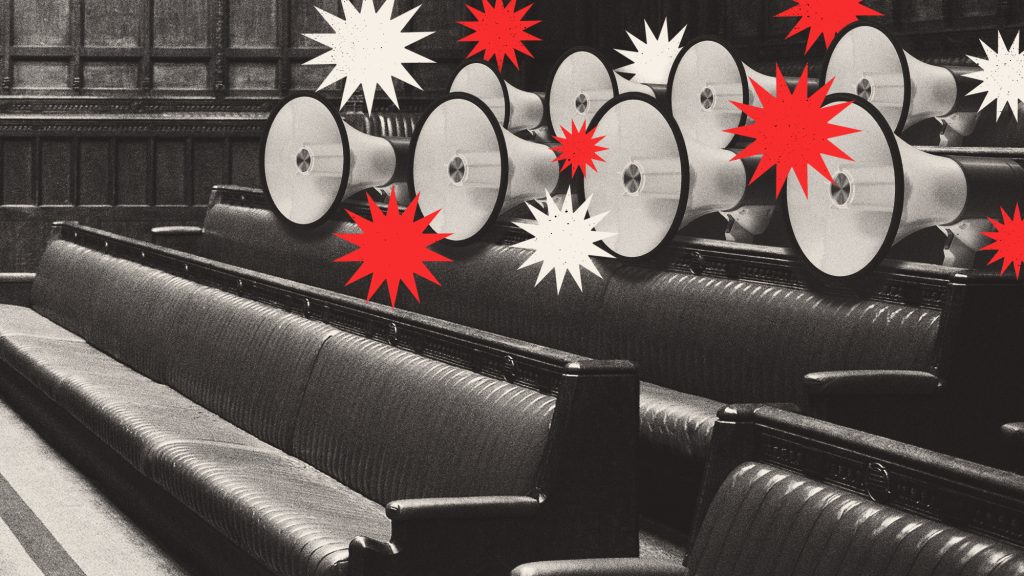Tonight’s expected rebellion by backbench Labour MPs could be the first of many as Keir Starmer struggles to keep control of his party in power.
The government was forced into a U-turn on the welfare bill last week and offered a number of concessions, but No. 10 still fears it could have a major rebellion on its hands as many MPs are saying the changes do not go far enough.
Starmer and his No. 10 operation are caught in a perfect storm. A large number of marginal seats, better organised backbench operations and a desire to be seen to be representing their constituents means MPs are becoming harder to control.
What did the commentators say?
“Attempting to defuse a backbench rebellion is not something that’s meant to happen, one year into government, with a working majority of 165,” said the BBC‘s political editor Chris Mason.
There is speculation that as many as 40 to 50 Labour MPs could rebel, but “things remain fluid”. Given the size of the Starmer’s majority, around 80 MPs would need to vote against the government to defeat the bill, with a key factor potentially being how many choose to abstain from the Commons vote this evening.
This latest backbench campaign comes just weeks after another “embarrassing climbdown” over means testing the winter fuel allowance, said the Institute for Government. These U-turns have set a “dangerous precedent” for Starmer’s government so early in its first term – and this challenge from his MPs is “unlikely to be the last” he faces.
That’s because backbenchers these days are “less inclined to be loyal to party leadership”. Many MPs are “keener now to be seen to be representing the concerns of the constituents (who are jamming their inboxes with worries about losing their winter fuel subsidy or PIPs) than to help Rachel Reeves balance the books”. And the significant rise in the number of marginal seats at the last election also means the incentive to prioritise their constituents is “even stronger for MPs who feel insecure about their chances of holding their seat at the next election”.
Today’s backbenchers are also very well organised, having learnt from the likes of the European Research Group. They also benefit from having modern tools such as WhatsApp to help them. It means that “even a substantial majority is no longer a guarantee that a government can get its business through if its own backbenchers are opposed and have worked out how to work together”.
Rebellions are “rarely a one-time thing”, said Rachel Cunliffe in The New Statesman. Indeed, the data shows that rebelling “gets easier with practice”. Philip Cowley and Mark Stuart, from the University of Nottingham, analysed rebellions in the 2001 parliament under Tony Blair “and found a worrying trend of MPs who had previously been obedient getting a taste for revolt”. And “once Theresa May had lost one vote on Brexit”, she subsequently “suffered 10 defeats on Brexit votes in nine months”.
Yet there is “nothing inherently politically significant about large backbench rebellions”, said Cowley in The Times. “How many people can remember the details of the largest backbench revolt suffered by John Major?” Or James Callaghan? Or Gordon Brown? It is not the size of the rebellion that should cause concern, but whether the issue “alienates significant elements” of the party, and whether the issue is “one which is central to government activity, and likely to remain so for the foreseeable future”.
What next?
Ministers say they have offered the rebels “everything possible to back down” in the hope they will avoid defeat in the Commons vote, said The Times.
Starmer could now remove the whip from “the sizeable group of backbenchers still intent on voting against the government”. Or he could suffer a “further blow to his authority, which has already been severely undermined by the row”.
And with the PM now looking “politically weakened”, he could face yet another rebellion as MPs demand he “ditches the hated family farms tax”, said The Express.
Backbench rebellions and broken promises: is it getting harder to govern?
